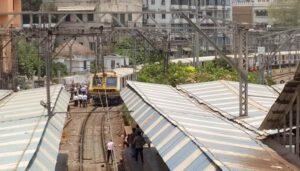Mumbai Police Denies Permission for Maratha Reservation Hunger Strike at Azad Maidan

Mumbai, 25th January 2024: The Mumbai Police has denied permission to Maratha activist Manoj Jarange Patil to conduct a hunger strike at Azad Maidan as part of the ongoing Maratha Reservation protest. Concerns about the anticipated large crowd and limited capacity at Azad Maidan were cited as reasons for the denial.
Azad Maidan, with a capacity for only 5 to 6 thousand participants, was deemed unsuitable for the expected number of protesters participating in the Maratha reservation protest. Jarange, leading the Maratha Kranti Morcha, had sought permission for the hunger strike to highlight the demand for Maratha community reservation through the Other Backward Class (OBC) category. The police expressed concerns about the impact on daily traffic in Mumbai given its status as the economic capital.
The police underscored Mumbai’s role as the economic capital, with millions commuting daily and the presence of national and international offices. The potential disruption caused by the protest rally entering the city was highlighted as a key consideration in the decision to deny permission for the hunger strike at Azad Maidan.
In response to the denial, Manoj Jarange Patil suggested the International Corporation Park ground in Sector 29, Kharghar, Navi Mumbai, as an alternative venue for the hunger strike. The proposed alternative aims to address concerns about traffic congestion while allowing the protest to proceed.
As Jarange continues his padayatra towards Mumbai via Navi Mumbai, the Navi Mumbai police issued a traffic advisory, diverting routes on January 25 to ensure smooth vehicular flow. Despite the denial of permission for Azad Maidan, the Maratha Reservation protest remains an ongoing issue with legal and logistical considerations.
While the Bombay High Court refused to bar Jarange’s entry into Mumbai, it directed the Maharashtra government to prevent road congestion during the protest. The government is urged to strike a balance between citizens’ right to protest and the imperative of maintaining public order.




